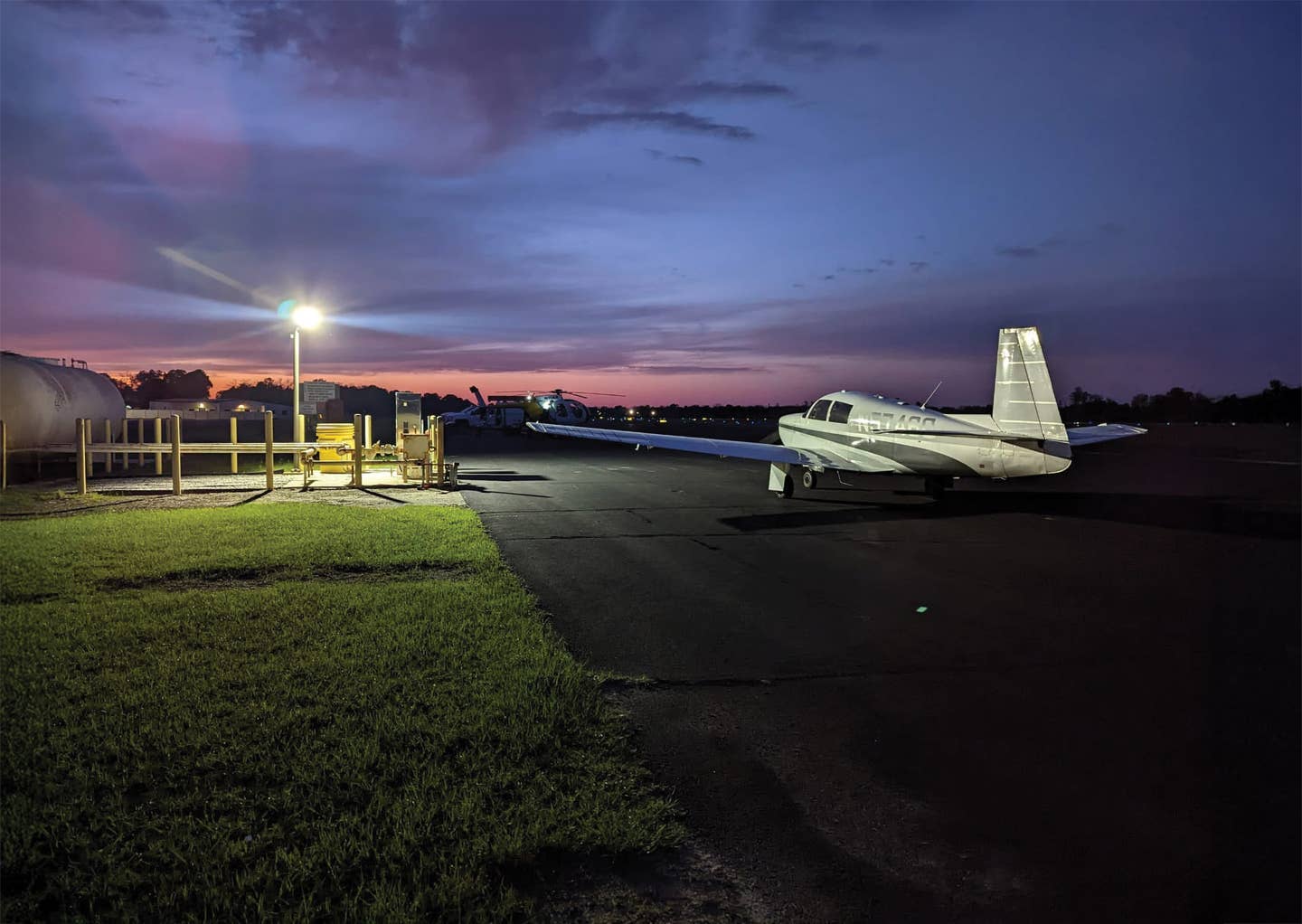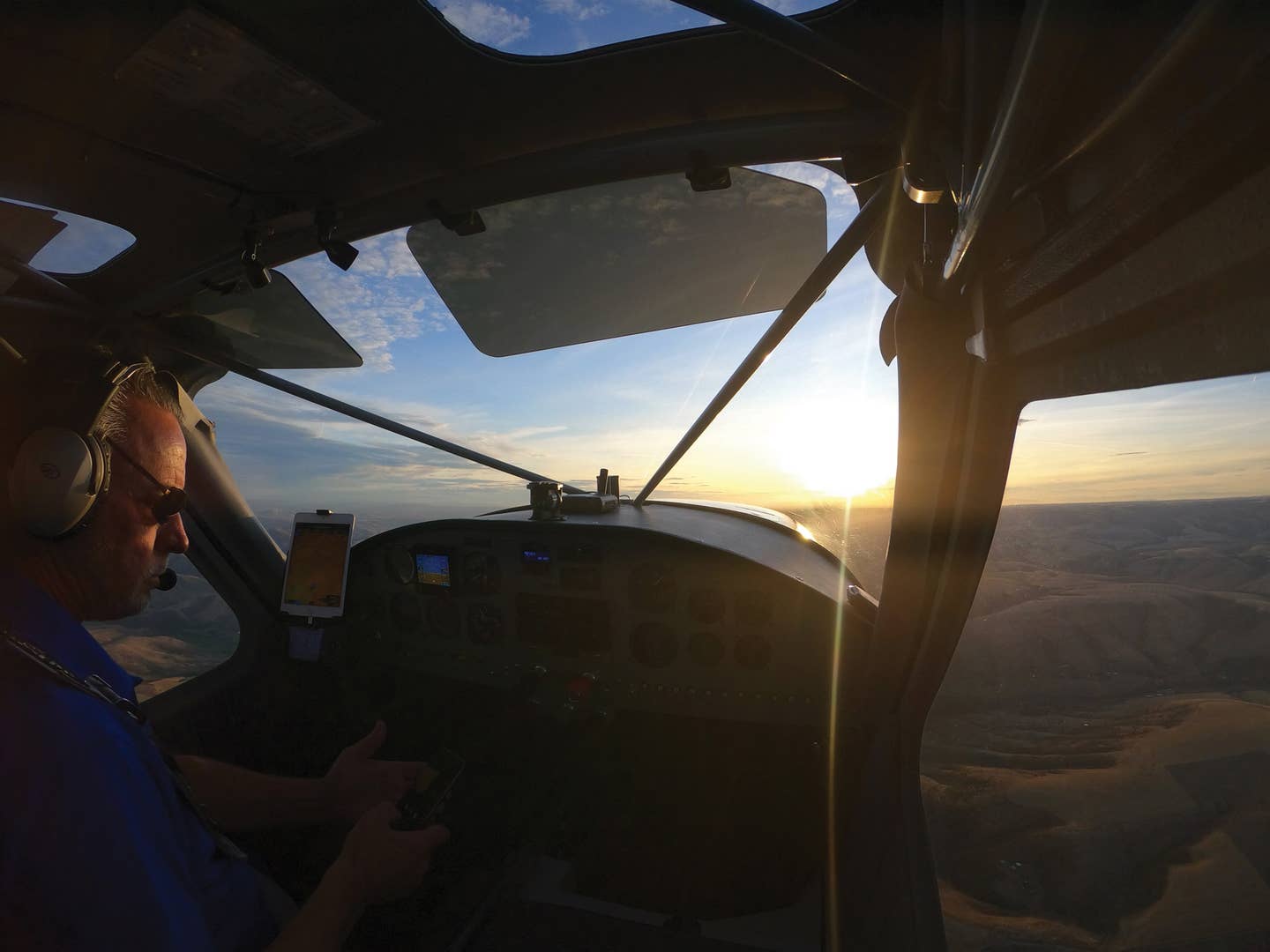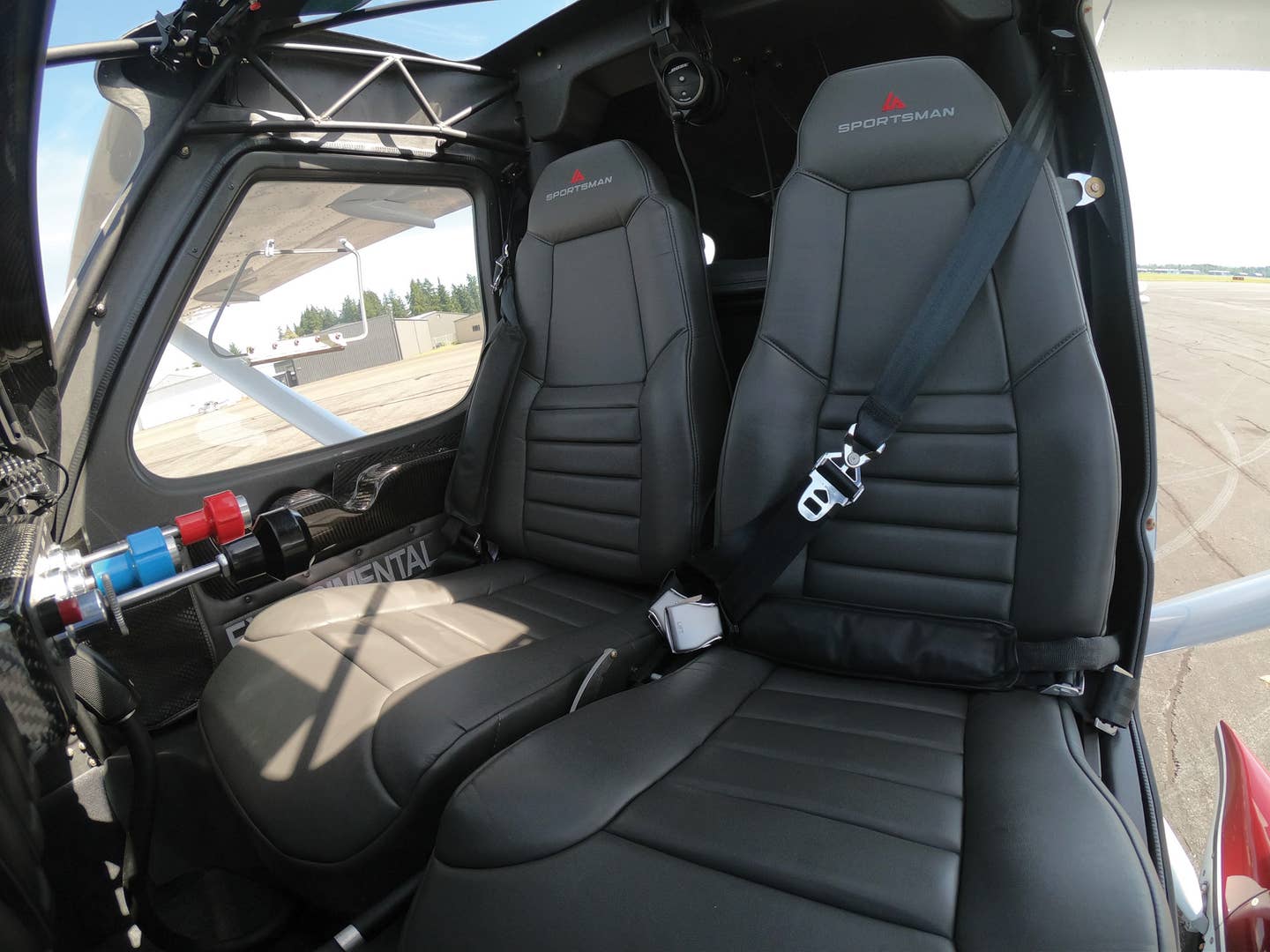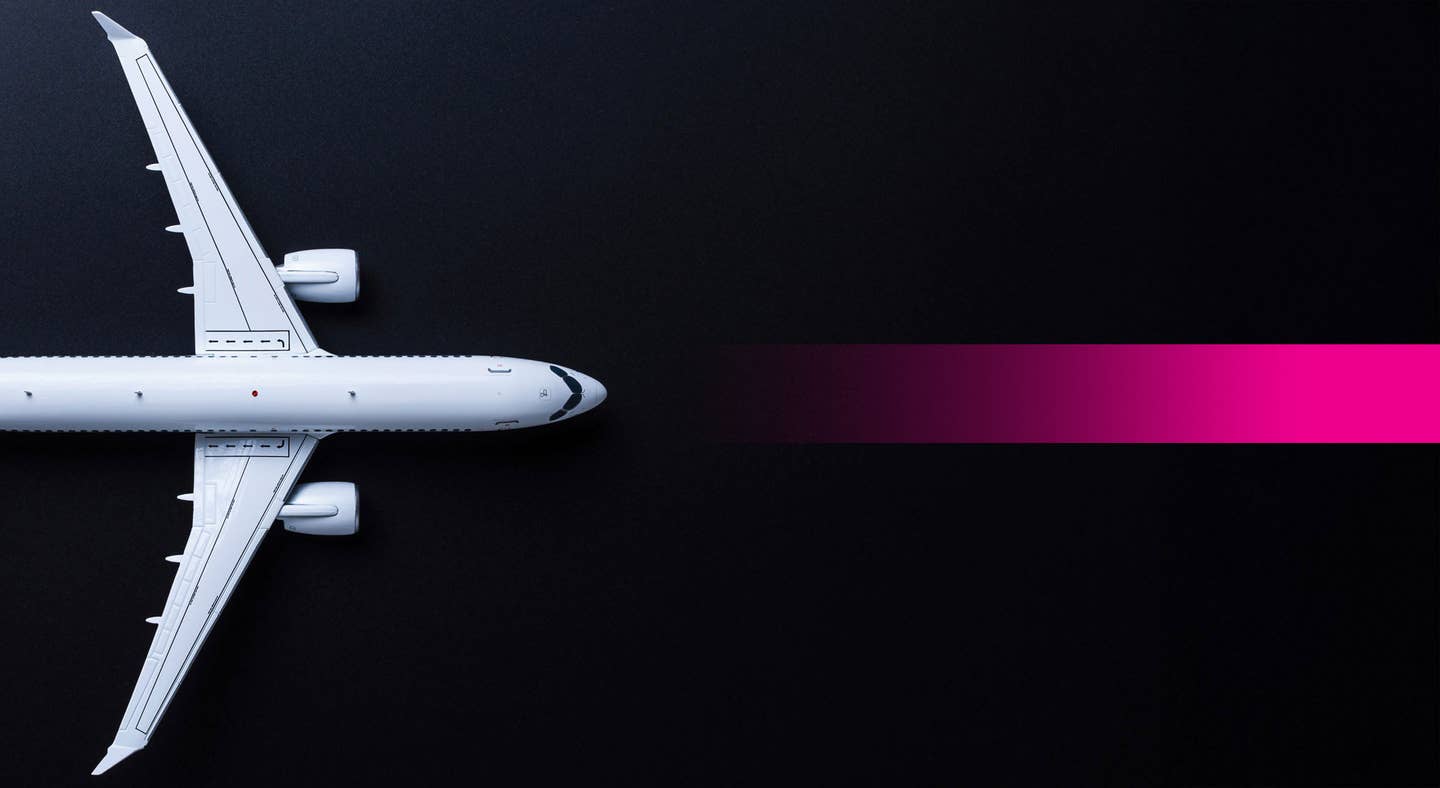Corny Aviation Sayings: Your Ticket To Success?
When you’re looking for a dose of self-confidence, sometimes the clichés are on the money
Subscribe todayto Plane & Pilot magazine for industry news, reviews and much more delivered straight to you!
Life is full of ups and downs, and so is pursuing aviation, both literally and figuratively. When we start taking flying lessons, we are all warned about the learning plateaus we will have to overcome. It is not always smooth sailing to become good at something, especially something as challenging and complex as flying an airplane---but isn't that challenge part of why we are drawn to flying? In great effort, there is great reward. But embarking on a new venture can also test our resolve, dedication, motivation and self-confidence.
Doing something new is exciting and energizes our brains, but It takes a brave person to take the plunge and walk into a new environment. Whether pursuing a private pilot's license or an advanced rating, or just trying to maintain currency, failure or success is all up to you. Most pilots I've met are self-confident Type-A people, and success is something they thrive on. But self-confidence is also a tricky, precarious and sometimes elusive thing, even for the most successful people. One day you have it, the next day you don't. It can take a mere sideways glance or a raised eyebrow to erode it, and then, poof, it's gone in a second. When we step out of our comfort zone into a new environment, self-doubt and lack of self-confidence can affect even the most accomplished people, and we might ask ourselves: "What am I doing here?" "Can I ever be good at this?" "Do I belong?"
I am not the corny platitude type. I don't usually rely on clichés, but I have to admit that even I sometimes put a postcard up next to my desk with a little saying that helps me get through the day. For a while I had a Zen quote: "The secret to life is to not waste time." Then a quote from the movie "Miami Vice:" "Probability is like gravity. You can't negotiate with gravity." I'm not exactly sure what it means, but I like it. By the way, "Miami Vice" both from 1984 and the 2006 movie have great quotes like Sonny Crockett's character saying: "You've got to know the rules before you can break ’em. Otherwise, it's no fun." Let's face it, we all need a dose of inspiration from time to time, so that "When the going gets tough, the tough keep going."
I know firsthand how hard it is to overcome a bad day in flying. We reach plateaus where we don't feel we are making progress, forget things, can't find the ground and flare too high on landing. Sometimes we just do something dumb, so maybe this is the time to drag out a few of those corny platitudes that can help get us over a hump or a slump and give us a little shot of self-confidence just when we need it. "You were born to be real, not to be perfect" is truly corny and gag-worthy, but you have to admit that it is sort of true. Keep in mind that whatever your footsteps today---a bouncy landing or otherwise---we can take solace in the fact that someone has gone there before us. Everyone makes mistakes.
Sometimes we face discouragement and frustration. Most CFIs are professional but if, for the second time in a row, your instructor didn't show up and had to cancel your lesson, try not to let it get the better of you. "Life is about kicking ass, not kissing it!" This sentiment helps me at times. This might be the time to stand up, find another instructor and move on. Don't worry about hurting their feelings. This is about you and your desire to learn to fly.
A friend called me recently and said she was afraid of a taking a cross-country trip in her small airplane, although she really wanted to go. We looked at the weather together and its improving trend, so I told her just take it one step at a time and fly from airport to airport. The ceilings weren't high, but they were VFR and safe enough to not to run into any obstacles or towers, plus there were a lot of airports along the way. Surpassing limitations means dipping your feet into the water a toe at a time, and, who knows, you might be surprised at what you're capable of. "The best way to gain self-confidence is to do what you are afraid to do."
"Give it all you've got; you never know if there will be a next time:" I have used it a number of times in competition, telling myself that even though I loved precision aerobatics, there might not be another contest, so I'd better give each one all I've got. There might not be another flight lesson (a tsunami might hit, anything can happen), so make the best of every one. Fatalistic? Perhaps, but it is something to think about and a way to consistently get your best performance.
Arthur Ashe, one of tennis' most inspirational champions, said, "One important key to success is self-confidence. An important key to self-confidence is preparation." If you're not prepared, you can't blame your own low performance on anyone but yourself (unless, of course, guidance was not given in how to prepare). If you're not prepared and haven't done your ground work, it won't help your level of self-confidence in the air. Preparation will give you your best chance at success.
Whoever said, "Avoid negative people, for they are the greatest destroyers of self-confidence and self-esteem. Surround yourself with people who bring out the best in you," deserves a medal. There are energy vampires out there---friends or a bad instructor---who don't really support your flying. It's your life, your dream, so find a community of people who do support you---the right flight school, an airport pilot association, EAA, IAC. A feeling of community and belonging is one of the most important things in keeping people involved and interested in pursuing aviation. And if someone doesn't like what you're doing, remember: "A tiger doesn't lose sleep over the opinion of sheep."
"If they can do it, I can do it." This is my quote and has motivated me many times. The first aerobatic competition I went to as a spectator was a revelation. I watched the top pilots, Clint McHenry and Bob Davis, fly Unlimited aerobatics---the top category---and I said to myself, "If they can do it, I can do it. They are champions, but they are not superhuman (despite what they told me, haha). They're just people who love being around airplanes. I may be 5'3" and not very strong, but I have the desire, and that is the first step toward anything."
The thing about self-confidence is that the more you have, the more you get, but it's very easy to lose when the ups and downs and plateaus of flying and of life present themselves. Sometimes you have to fight to regain your confidence when your landings weren't the greasers you hoped for or any number of other things, but with practice, you will find that, "You have what it takes." Learning to fly isn't easy, but the reward of flying solo above the mundane is a reward much greater than just gaining a new skill. When things get tough, it's important to ride it out because the self-confidence you gain will help you succeed in every other area of your life.
At our aerobatic school, I know our new students are excited about the experience they are about to have, but I also know they are apprehensive if it's something completely new for them. I want them to feel that they will do well and enjoy the experience. Most importantly, I want the skills they learn and the experience they have to help them gain a new sense of self- confidence and ultimately more enjoyment out of their flying.
The late James Ray, a man I admired immensely, founded the Central Florida Aerospace Academy, a high school focusing on STEM subjects and encouraging students to take advantage of student scholarships in order to learn to fly. He believed that aviation serves as a platform for accomplishing goals and gaining discipline. He said, "Teaching young people the discipline to require to learn the science of flight builds character and confidence. The experience of solo flight teaches them that they are independent and free-thinking individuals who are fully capable of being in control of their own lives."
Self-confidence is an important quality for a pilot to have. A self-confident (not overly confident) pilot will face new challenges by using their head, thinking things out, not giving up and not feeling defeated. We can't prepare for everything that might happen when we're in the air, but when faced with new situations like worsening weather, cross winds or navigation challenges, a pilot needs a confident attitude to be able to think clearly, perhaps doing a 180-degree turn or a go-around when necessary.
A quote by contemporary author John Raynolds speaks well to pilots: "Self-confidence is not taught or learned; it is earned by surpassing your own self-limitations." Denis Waitley said, "To establish true self-esteem, we must concentrate on our successes and forget about the failures and negatives in our lives." Time to man up and not let anything get us down: "Self-confidence: Rock it."
Patty Wagstaff is a three-time U.S. National Aerobatic champion, inductee of the National Aviation Hall of Fame and one of the world's top airshow pilots. Visit pattywagstaff.com/school or reach Patty via email through pattyaerobatics@gmail.com.
Want to read more from Patty Wagstaff? Check out our Let It Roll archive.

Subscribe to Our Newsletter
Get the latest Plane & Pilot Magazine stories delivered directly to your inbox






